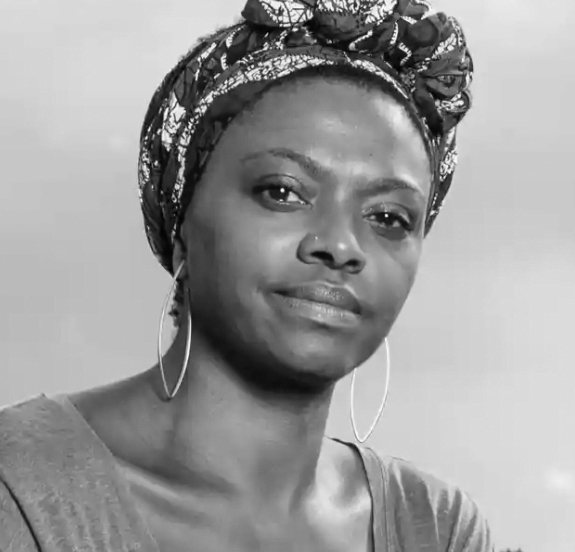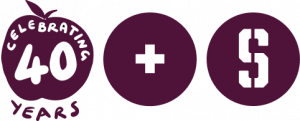Early this year I was invited by Team London Bridge, in partnership Apples and Snakes, to put together a day of interactive exercises that would inspire a different spin on talking about the climate and ecological crisis as part of the epic In A Field by A Bridge Festival.
Since 2018, I’ve had many conversations in climate and environmental circles with organisations such as Julie’s Bicycle and Culture Declares Emergency and found that there was a part of the climate conversation that was missing. People were talking about self-care. Rest was a big feature but what was missing was a moment to just stop and assess what it is you need that looked like nothing at all. I decided to create a creative event entitled “The Pause”.
I took to the concept of pausing our hectic lives to encourage a practice of taking a beat, a breath, a moment of inaction to calm the body and settle the chemical, electrical and hormonal charges that course through the body, before launching into the next flurry of action. Even if it was an act of self-care.

Image: Zena Edwards leading the workshop at The Pause Field Lab.
The day had a journey to embodiment and planned like this:
- We would watch a screening of “Can I Live?”, an hour-long film with a powerful blend of spoken word, live music, movement and theatre written and performed by Fehinti Balogun
- A post- screening Q&A. Lunch (which was delicious).
- A poetry writing exercise and discussion in reflection of the film.
- And last but by no means least, an experimental embodiment and storytelling session run by the incredible Stacy Makishi.
The writing and actor’s artistry of Fehinti and the imaginative production experience and skills of the theatre-makers ‘Complicité’ is the collaborative tour de force that brought “Can I Live?” into the world. This hour-long multimedia poetic film explores the tumultuous awakening of one individual to human-fuelled climate change, environmental disparity, and the looming ecological crisis. To the protagonist, Fehinti himself, it became increasingly vital for him to take meaningful action.
As we sat through this thought-provoking and fiery film, one fear or concern reared its head that resonated deeply with many of us: the fear of irreversible damage to our planet and the well-being of future generations. This film was a stark reminder that the consequences of climate change are not a distant future but a present reality.
Following the screening, we had the privilege of an engaging Q+A session with Fehinti, delving into the complexities of making a piece like this: as a person of colour, where does his voice fit in the climate change conversation; how do you get others especially friends and family to care as much as you do; what do you do with the anger at the politics around climate change and what can you do so you feel like you’re doing enough to be part of the solution?
Because the day was titled ‘The Pause’, Fehinti was asked how he would pause. He spoke frankly about his own burn-out. His advice was to be vigilant about how much energy and passion you invest in collectives and movements overtly pushing for change. It was apparent that pausing gives space for clarity, to comprehend what your thoughts about the actions you have taken are actually and to allow solutions to come to you through your faith in your experiences, rather than striving to the point of an uncomfortable and unrewarding strain.
Lunch was provided and it was absolutely delicious! And that is all I have to say about that. If you like your food fresh, clean, locally sourced farm-to-table food then take a look at their website – www.farmrj.com


Images: Fehinti Balogun in the Can I Live performance and at The Pause Field Lab Q&A.
I was leading the poetry and creative writing part of the day. I started with a simple embodiment exercise to encourage participants to ground themselves in the present. I asked them who they were without their job titles, without their qualifications and job status. I went so far as to ask them who are they without their friendship or family roles. This can be a tough exercise because people identify themselves with who they know, their bloodline and what they own. I asked them to put that all down and just be a human being in the moment releasing the gravitas of their roles and titles. I’d call this ‘extreme pause’, maybe? Because you are asked to go back to knowing that you are made of flesh, that belongs to the earth and that you are this ‘animal’ first.
My co-facilitator was Eileen Gbagbo. I met Eileen on an Apples and Snakes ambitious and environmentally conscious music and spoken word show Cece’s Speakeasy, upon which I was the artistic director. The show’s aims were to highlight the impact of climate change on sensitive plants such as coffee and chocolate and use music, poetry, visuals and movement as a tool to raise awareness. As an emerging artist, I want to continue to work with Eileen’s maturity in her awareness and thinking processes around eco-themes.
Our hour on this Pause Day was to inspire the participants to actively search for alternative narratives to the mainstream narrative of a climate apocalypse.
We started by introducing an expansive eco meaning of the adage ‘what if…?’
I shared an extract of a poem by Clauine Rankin –
What if over tea, what if on our walks, what if
in the long yawn of the fog, what if in the long middle
of the wait, what if in the passage, in the what if
that carries us each day into seasons, what if
in the renewed resilience, what if in the endlessness,
what if in a lifetime of conversations, what if
in the clarity of consciousness, what if nothing changes?
Participants were then introduced to the free-flow poem entitled ‘what if’ and they were asked to imagine alternative narratives to what they had written on the flash cards at breakfast.
The results surprised them and poems did come out of the free-flow exercise.
What if I did not live in constant peril
How about I did not think, even just for a day, about everything
that is so obviously wrong with the world
Imagine if I just lived to be
What if there was currency for compassion
What would it look like?
They say that when things are free people actually take less
What if I did not live in constant peril
How about I did not think, even just for a day, about everything
that is so obviously right with the world
Imagine if I just lived to be
– T

Image: The team exploring play and imagination during The Pause Field Lab.
Stacy Makishi took us all to the next level of exploring The Pause. Not only did we explore some fundamental lessons in play and non-judgement, but the imagination muscle was given a gentle yet spirited workout.
We all surprised ourselves at how far we as individuals, with responsible jobs and burgeoning careers, can go into a state of play, an essential technique to process some of the hard stuff we have to deal with as adults in this moment in history.
By using random objects, we collectively and spontaneously improvised the story of an imaginary character and their made-up existence as a 21st Century imaginary friend.
As each person added a random item, the story evolved from sweet and humorous moments that warmed the heart to cameo moments that were tense and uncertain. Pretty much like life. And we did all of this with NO WORDS! We story-told as a collective with our bodies and the transmission of our intention.
Overall, The Pause was more than just about reflection. It was a reclaiming of head and heart space to really view ourselves as authors of the new existence we want to see, which includes empathy for the human who is more than what we can produce or consume.
And to end with Stacy’s storytelling exercise, we were able to bring completely uncensored and humane exploration to the creative space to pause in a way that felt like a gap in our usually packed diaries which is was filled with…. ⏸️

This blog post was created in partnership with Team London Bridge

About Zena Edwards
After graduating from Middlesex University and studying storytelling and performance at The London International School for Performing Arts, Zena has been a professional writer/performance poet, curator and creative project developer.
She is known as a renowned award winning UK based poet of Afr-Carib-British heritage, however
she is also a polyglot, at home with collaborating with musicians, choreographers, and visual artists.
The list of acclaimed artists she has worked with include Theaster Gates, Ackroyd and Harvey and Akram Khan.
